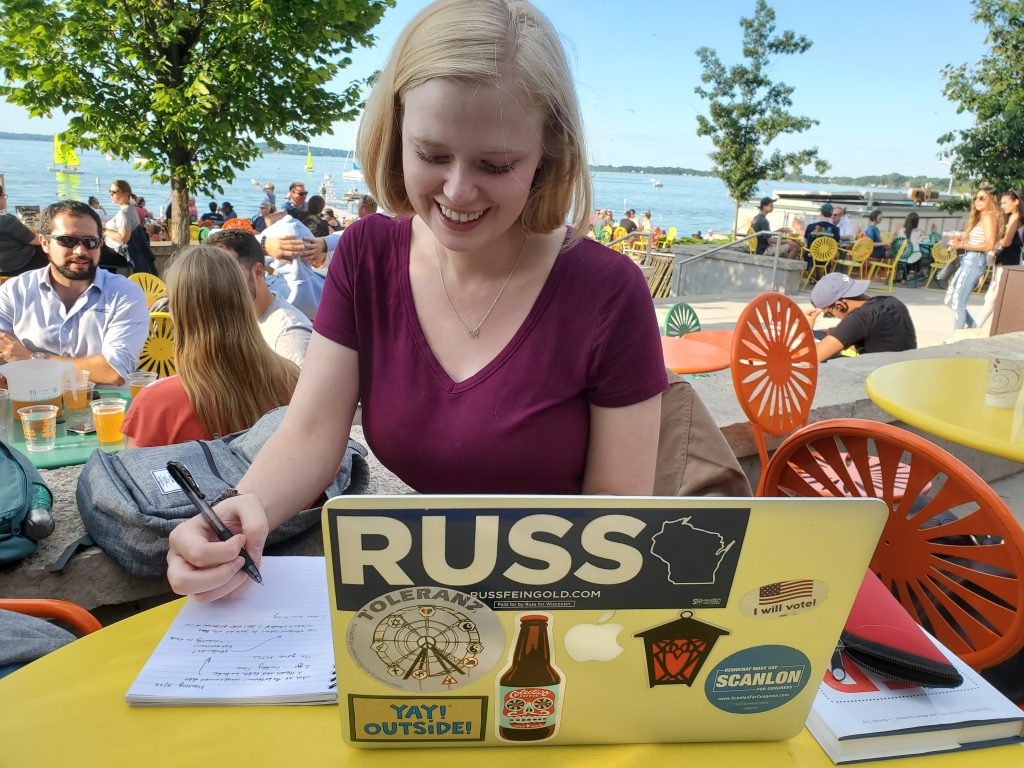Name: Nora Cahill
Class Year: 2021
Major: Economics/Math minor
Hometown: Madison, Wisc.
Internship Organization: Institute for Research on Poverty, with Tim Smeeding, Professor of Public Affairs and Economics at the UW-Madison La Follette School of Public Affairs
Job Title: Project Assistant
Location: Madison, Wis.
What’s happening at your internship?
My boss, Tim Smeeding, is writing a book on economic inequality, different ways to measure it, and potential policy solutions for the financial problems faced by hundreds of thousands of people in the U.S. Tim has spent his career studying, writing about, and influencing policy about economic inequality. This book will specifically focus on the pros and cons of different datasets and measures of well-being, issues that are keeping American society highly unequal, and how to improve our measurement in the future.

Why did you apply for this internship?
I’m really interested in economic inequality and how it relates to policy, and Tim’s work is exactly up that alley. This internship seemed like a great way to gain some practical experience with research and analysis, while become more familiar with research that’s already been done on subjects related to economic inequality. Now, at the end of the summer, I can say that it’s turned out to be a great step towards my goals!
What has been your favorite part of this internship?
My favorite part of this internship is how open-ended it is. Tim gives me a project every week, and I work on it on my own, going back to him if I have questions or have something to show him. Some weeks I’m looking at the connections between family wealth and education, some weeks I’m sifting through data to find important trends in consumer debt. I get to go down a lot of rabbit holes — if I think something is interesting and relevant, I’m always free to include it in my report!
Can you talk about the skills you are learning and why they are important to you?
I’m gaining a lot of hard research skills — like finding the papers that are most relevant to whatever I’m working on; learning R, a coding language used in data analysis; and creating graphics that help illustrate whatever I’m writing. These skills will help me when I’m doing research in the future — these are tools that economists use every day to make their work better. More broadly, I’m practicing working independently and using what I already know about economics to inform my work. These are skills that I’ll bring to whatever I do next, both during and after college.
